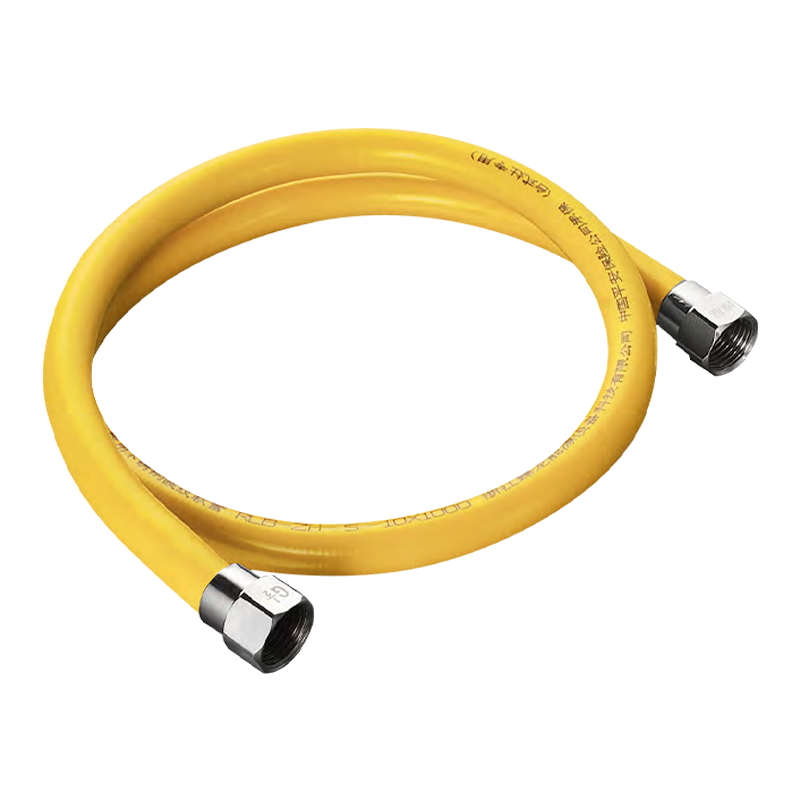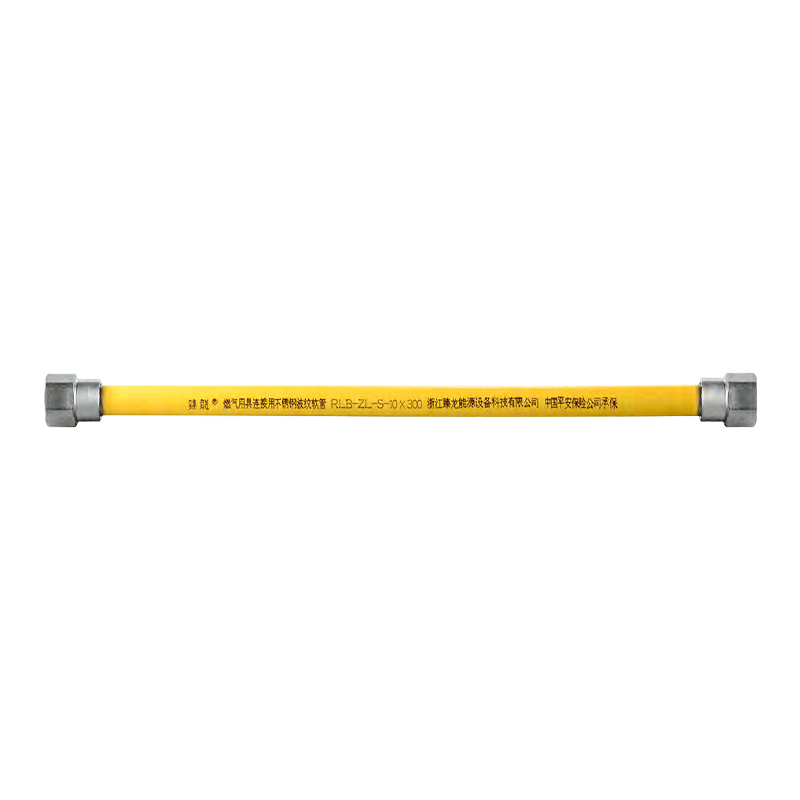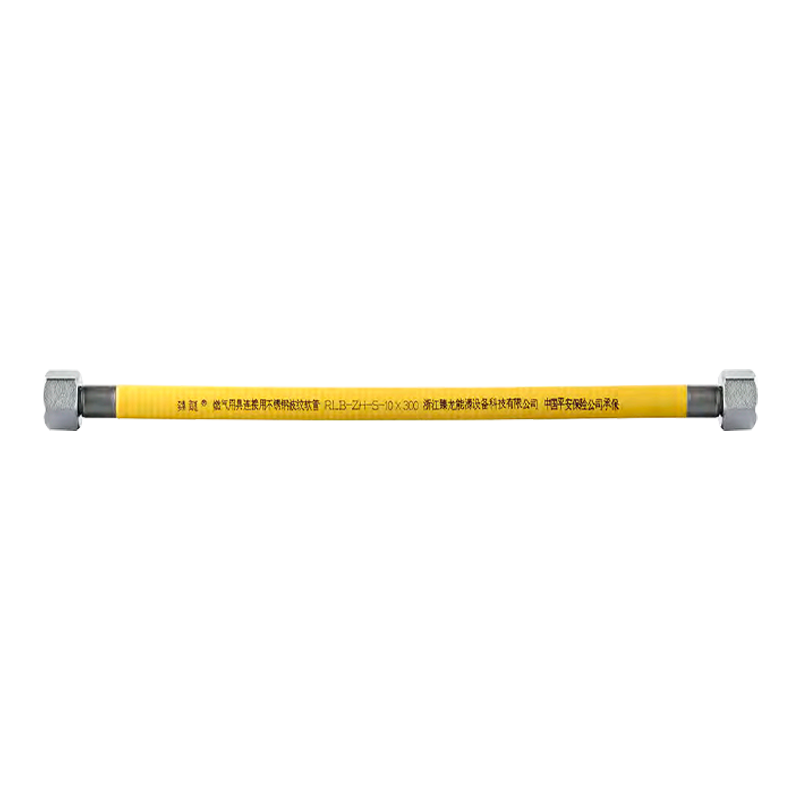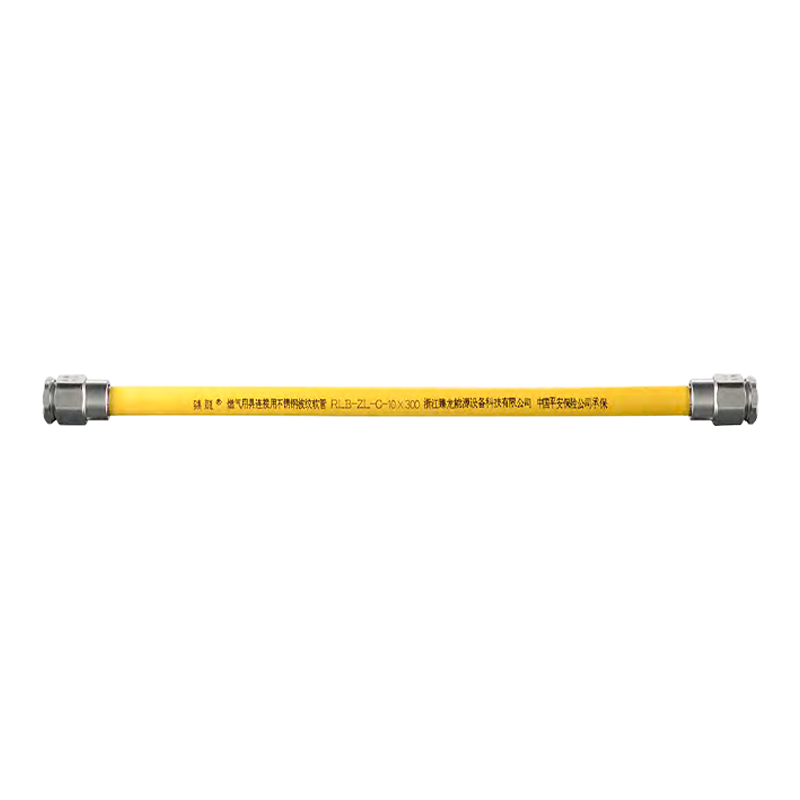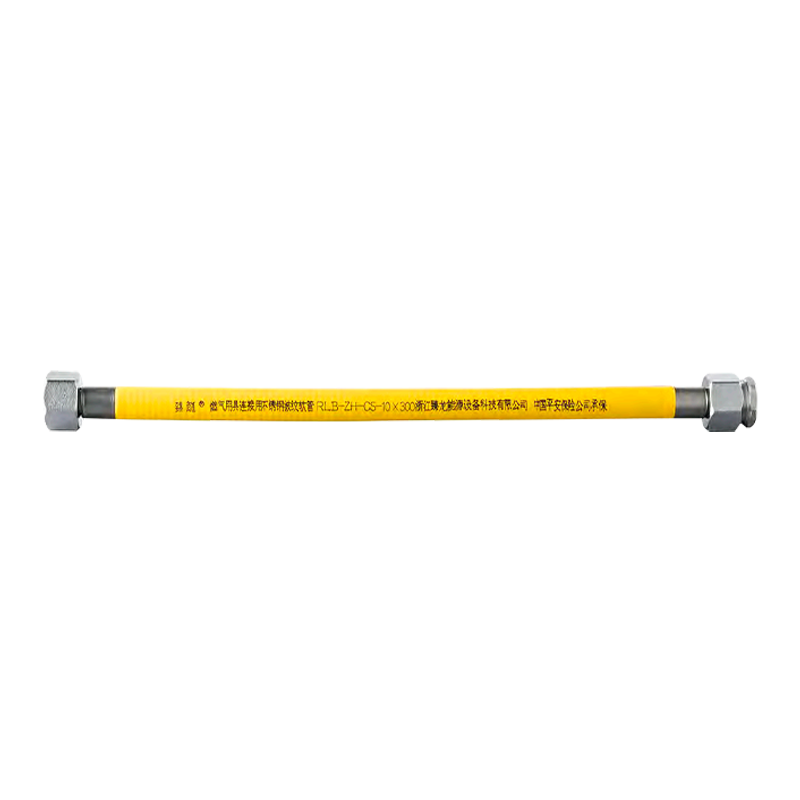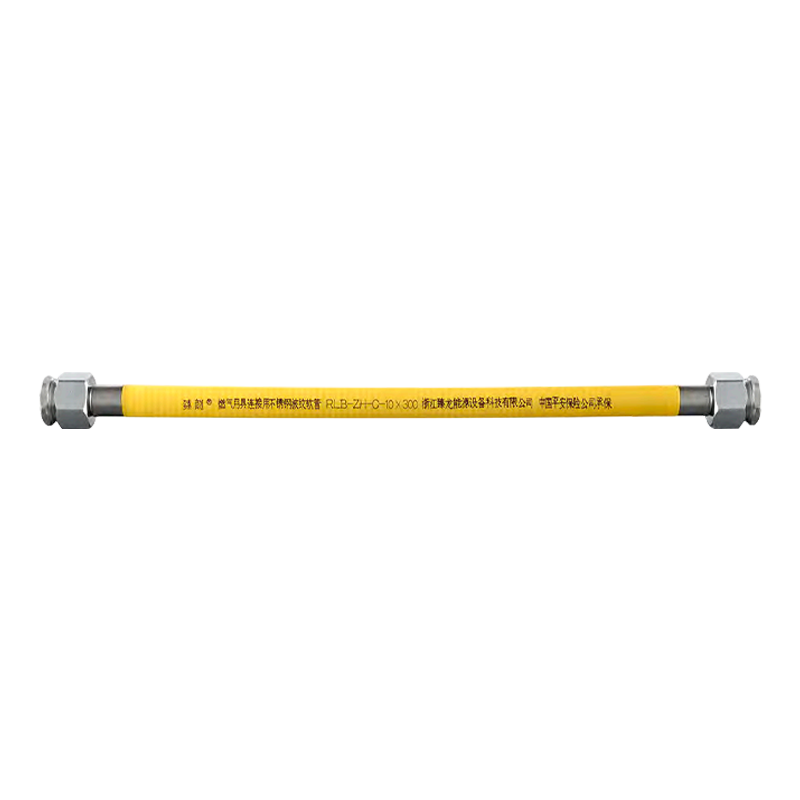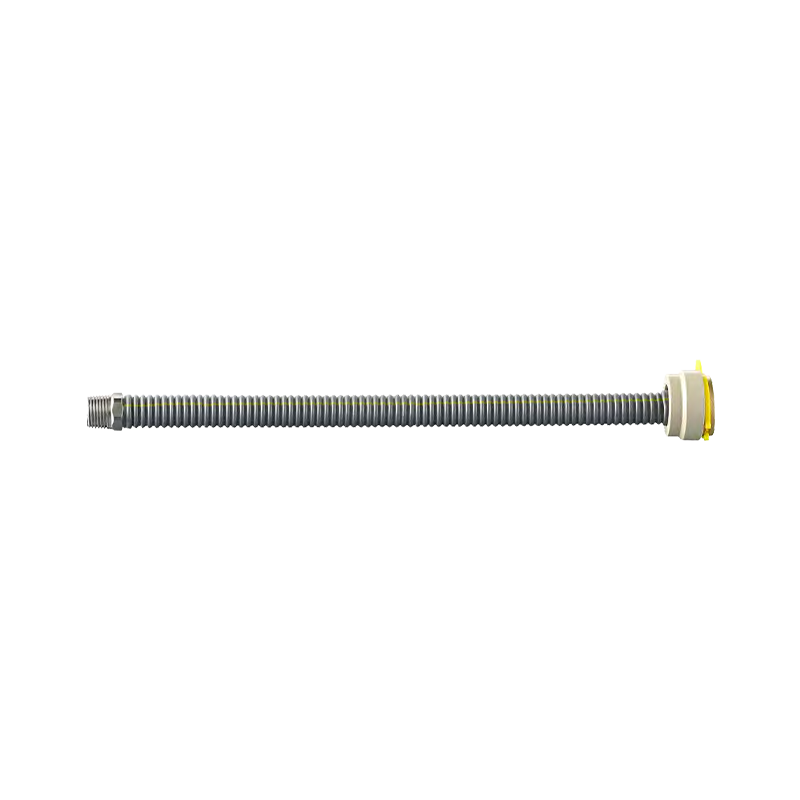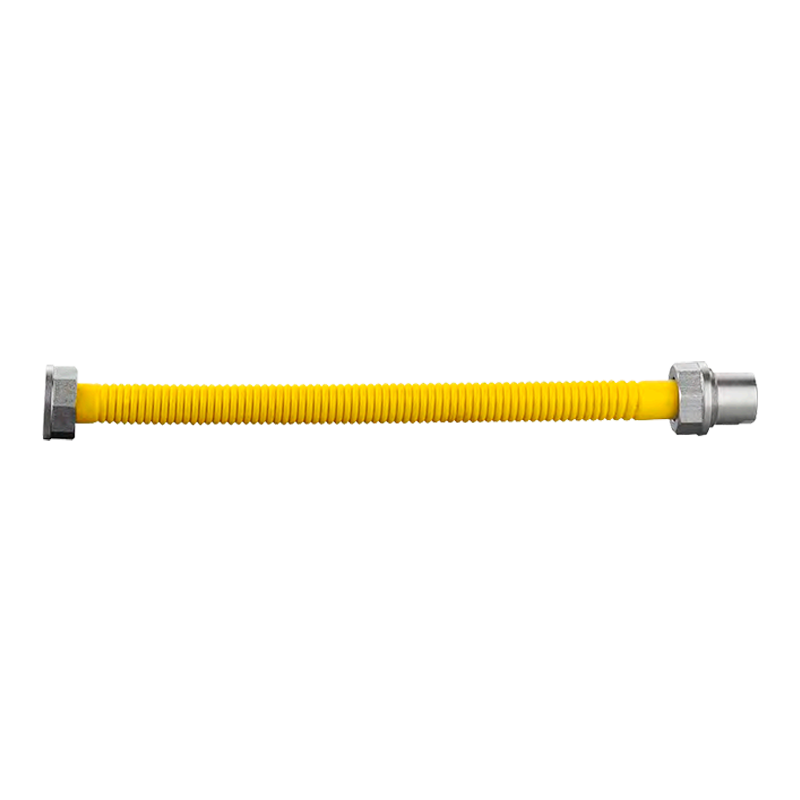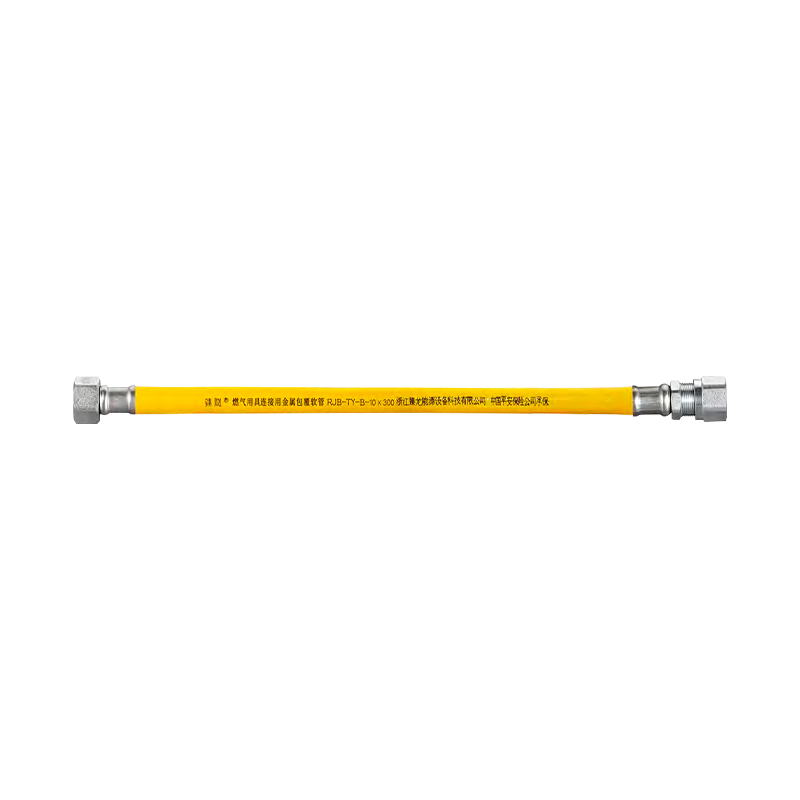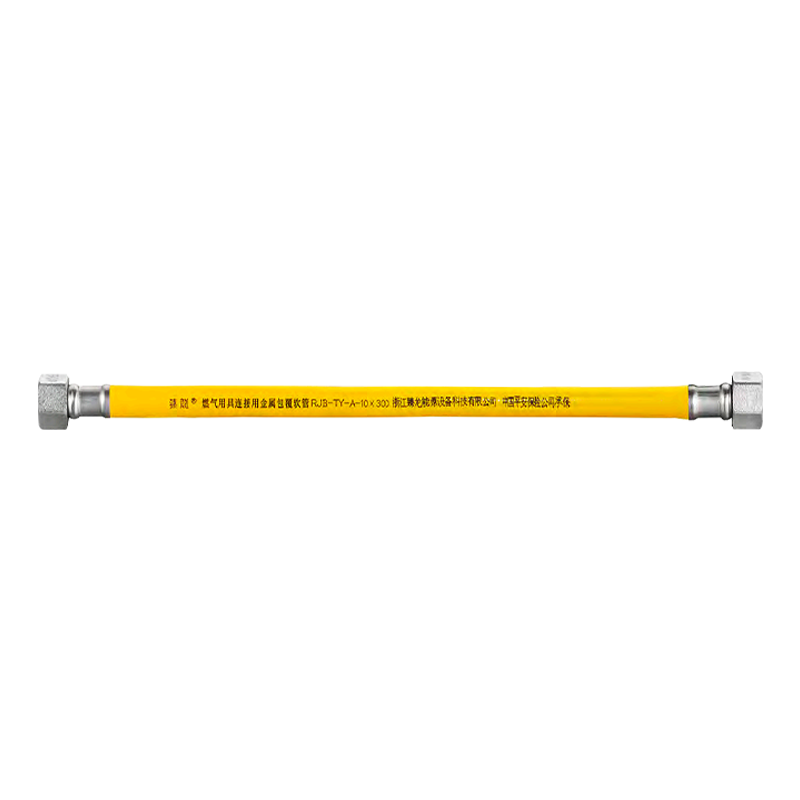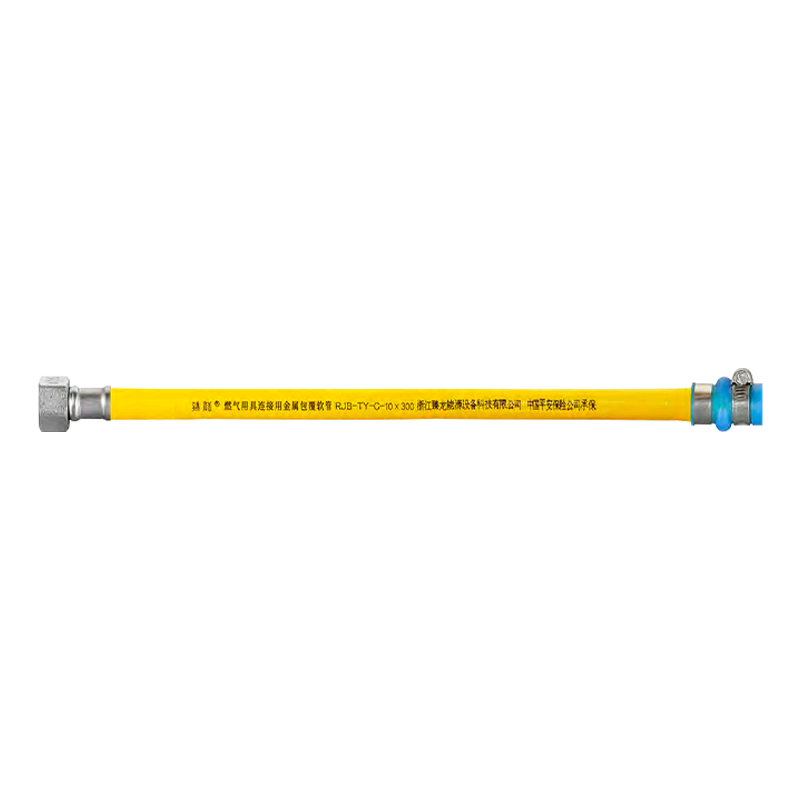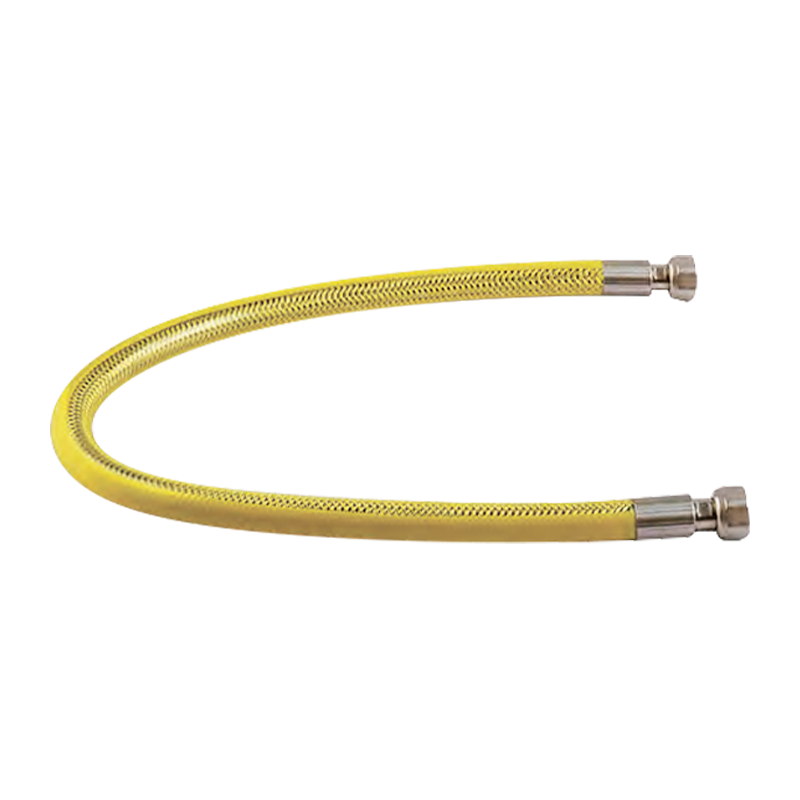Gas safety is an important part of family life that cannot be ignored, and the hoses connecting gas stoves, water heaters and other appliances are directly related to gas safety. In recent years, metal spiral hoses have gradually replaced traditional rubber hoses and become the first choice for gas connection. Why do professional organizations and gas companies recommend the use of metal spiral hoses? What are its advantages?
Content
1. Hidden dangers of traditional rubber hoses
Before the popularity of metal spiral hoses, most families used rubber hoses to connect gas equipment. However, rubber hoses have many safety hazards:
Easy to age and crack: Rubber is exposed to the kitchen environment for a long time, affected by high temperature, oil smoke, humidity, etc., and is easy to harden and crack, causing gas leakage.
Easy to be damaged by rat bites: The rubber material may be bitten by rats, causing damage and leakage, causing safety accidents.
Short service life: National standards stipulate that the service life of rubber hoses shall not exceed 18 months, but many families use it beyond the expiration date, increasing the risk.
Poor pressure resistance: The rubber hose has a low pressure bearing capacity. If the gas pressure fluctuates greatly, it may rupture.
These shortcomings have led to the gradual replacement of rubber hoses with safer metal spiral hoses.
2. Advantages of metal spiral hoses
Metal spiral hoses are made of 304 stainless steel wire braided layer + corrosion-resistant synthetic materials, which have significant advantages over rubber hoses:
l Super corrosion resistance and high temperature resistance
The stainless steel outer layer can resist the erosion of kitchen fumes and humid environments, and is not easy to age.
It has excellent high temperature resistance and can withstand temperature changes from -30℃ to 150℃, suitable for various gas equipment.
l Anti-rat bite and anti-wear
The metal braided layer can effectively prevent rats from biting and avoid accidental damage.
The outer metal protection makes the hose more wear-resistant and less likely to leak due to friction.
l Pressure-resistant and explosion-proof, good sealing
The metal spiral structure enhances the pressure-bearing capacity, can withstand higher gas pressure, and reduces the risk of leakage caused by pressure fluctuations.
The threaded interface + sealing gasket is more secure than the snap-on connection of the rubber hose to prevent falling off.
l Long service life
The service life of metal spiral hose can reach 8-10 years, far exceeding the 18 months of rubber hose, reducing the trouble of frequent replacement.
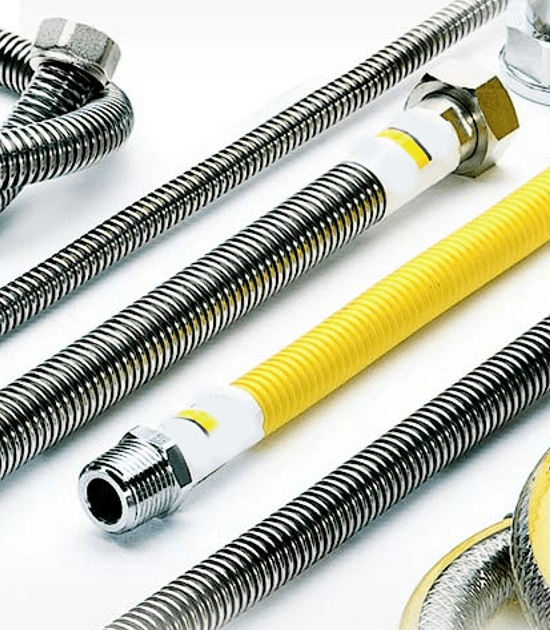
3. How to purchase and install correctly?
Although metal spiral hose is safer, you still need to pay attention to the following when purchasing and installing:
Recognize national standards: Choose products that meet GB/T 26002 or CJ/T 197 standards to ensure quality.
Matching interface type: The interface of gas stoves and water heaters may be threaded or quick-insert, which needs to be confirmed before purchase.
Moderate length: The hose should not be too long (generally not more than 2 meters) to avoid bending that affects airflow.
Professional installation: It is recommended to be installed by a gas company or a certified technician to ensure that the interface is sealed and leak-free.
4. What should be noted when using metal winding hoses?
- Regular inspection and replacement
Leak detection method: Apply soapy water to the interface after installation and regularly to observe whether bubbles appear.
Aging signs: If cracks, rust, hardening or loose joints are found, stop using and replace immediately.
Replacement cycle: Even if there is no damage, it is recommended to replace it every 2-3 years.
- Use taboos
No wall penetration/hidden burial: The hose must be installed openly and cannot be hidden in the wall or cabinet to prevent leakage from being difficult to detect.
Refitting is prohibited: The interface must not be cut off, lengthened or modified by yourself.
Adapter: Only for designated equipment such as gas stoves and water heaters, not for high pressure or non-gas scenes.
- Emergency treatment of leakage
When a gas leak is found, immediately close the main valve, open the window for ventilation, do not touch the electrical switch, and go outside to call the emergency repair phone.

 English
English 中文简体
中文简体 Español
Español عربى
عربى


